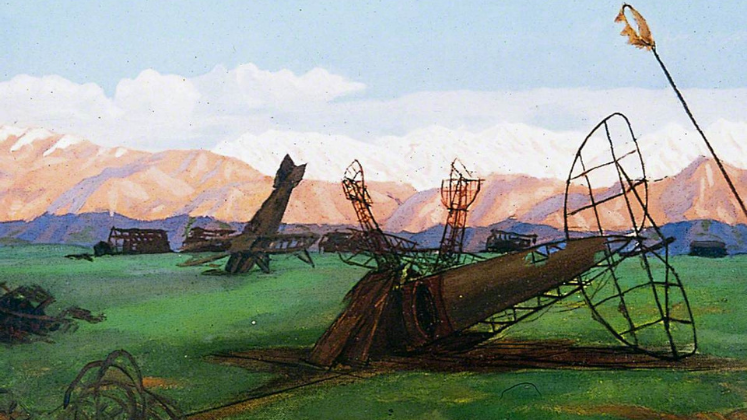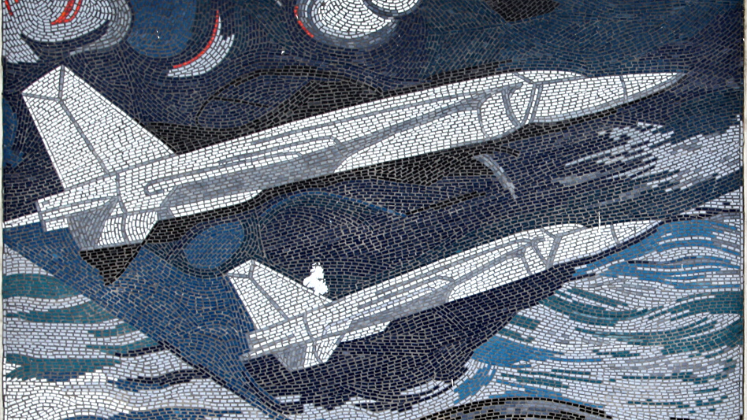Drawing on new data, Lin Zhang, Zhe Cao, Gunnar Sivertsen, and Dmitry Kochetkov explore how the conflict in Ukraine has changed Russian science and how international sanctions have played a minor role compared to domestic politics in isolating Russian scientists.
Does geopolitics influence science? Following the outbreak of war in Ukraine, many international scientific agreements between Russia and Western countries were terminated, including those related to the use of scientific infrastructure. However, most Western countries and universities have not limited partnerships at the individual level. Editors and publishers of scientific journals, with a few notable exceptions, also largely refused to follow the call to boycott the publications of Russian scientists.
This raises the question of the extent to which geopolitics has influenced international scientific cooperation with Russia. Contrary to popular perception, we found that the Russia-Ukraine war has not significantly affected long-term trends in international scientific collaboration with Russia. To test this we used a refined measurement of collaboration intensity and an indicator that measures the balance in the collaboration profile of a country over time.
We also expanded the general collaborative analysis by examining long-term trends and recent monthly changes in four different research fields using data from the Web of Science Core Collection. The study revealed a significant recent decrease in the number of publications with Russian affiliations, as well as a decrease in the proportion of Russian publications worldwide starting in 2019, three years before the war. This decline therefore cannot be attributed to the impact of the conflict in Ukraine or the pandemic.

Fig.1: Volume and global share of Russian articles 2000-2022.
The main driver of the increase in the number of publications by Russian universities during the 2010s was the 5-100 project, which aimed to include five Russian universities in the top 100 global university rankings. This project emphasised international collaboration and academic mobility, but its successor, the Priority-2030 program launched in 2021, did not include targets for international collaboration.
The share of Russian publications with international collaboration shows a similar pattern. Despite some fluctuations, Russian science remains highly integrated into the global scientific community, and the intensity of cooperation in bilateral relationships remains fairly stable.

Figs.2-6: Russia’s international collaborations.
Our study sheds light on how geopolitical conflicts can impact international scientific collaboration. In absolute terms, the number of publications in international collaboration has decreased in line with the number of Russian publications in general. The reasons for this decrease should therefore be sought in both external factors, such as sanctions, and internal factors, including the repression of academic freedom within Russia and its academic diaspora.
The politicisation of scientific cooperation and Russian science in general highlights the importance of academic freedom and institutional autonomy to science. The current lack of this autonomy is illustrated by the example of the RAS Institute for US and Canadian Studies. The director, Valery Garbuzov, was fired the day after his publication in Nezavisimaya Gazeta on “imperial complexes” of Russia without a clear explanation from the founder. Similarly, a number of universities have severed ties with universities in “unfriendly” countries, fearing they will be seen as “enemy collaborators.” For the same reason, scientists who work remotely from abroad have been fired (for example Igor Lipsits). In some institutions, articles are reviewed for “political correctness” before publication. The Foreign Agents Act has also had a significant impact on the academic environment, affecting several prominent scholars. Such an environment can hardly be considered conducive to the development of academic cooperation and science.
The problems of Russian science therefore appear to be domestic, rather than geopolitical. However, the study also points to how international scientific collaboration is not simply dictated by government and institutional agreements but is shaped by individual human interactions and networks that operate at different scales. Without this engagement, Russian science would likely be far more isolated now than it currently is.
This post draws on the authors’ article, The influence of geopolitics on research activity and international collaboration in science: the case of Russia, published in Scientometrics.
The content generated on this blog is for information purposes only. This Article gives the views and opinions of the authors and does not reflect the views and opinions of the Impact of Social Science blog (the blog), nor of the London School of Economics and Political Science. Please review our comments policy if you have any concerns on posting a comment below.
Image Credit: Zubkov Igor on Shutterstock.







